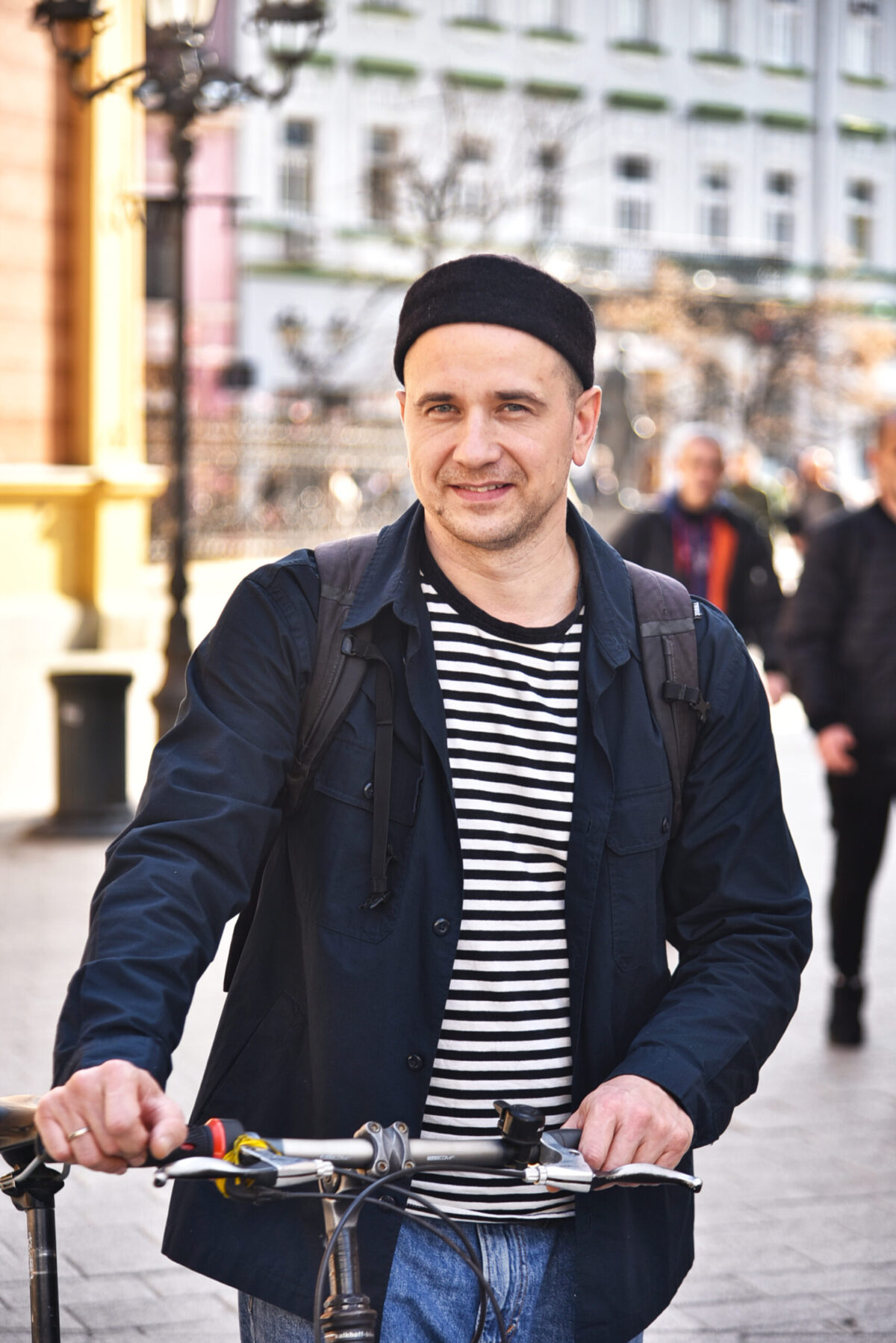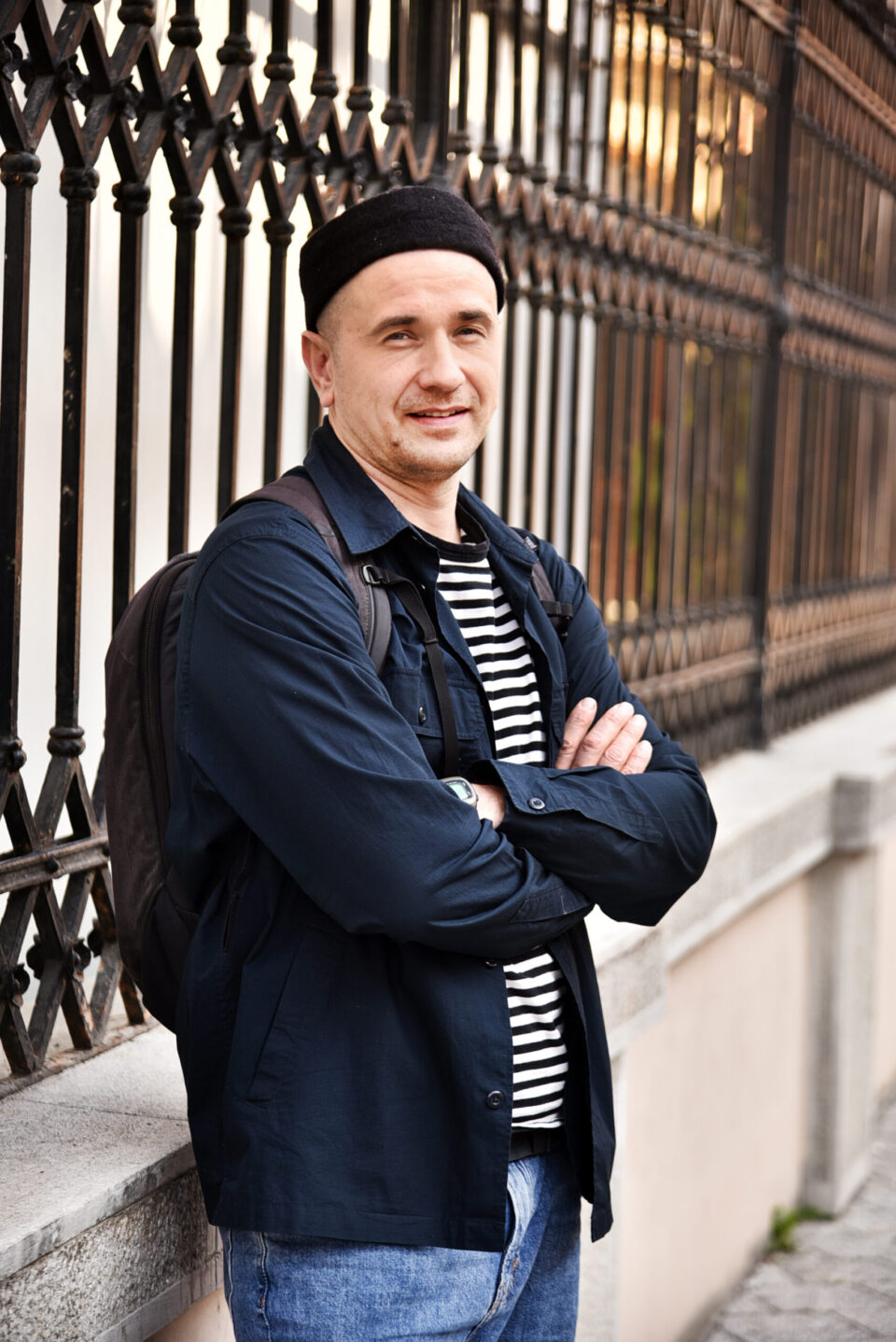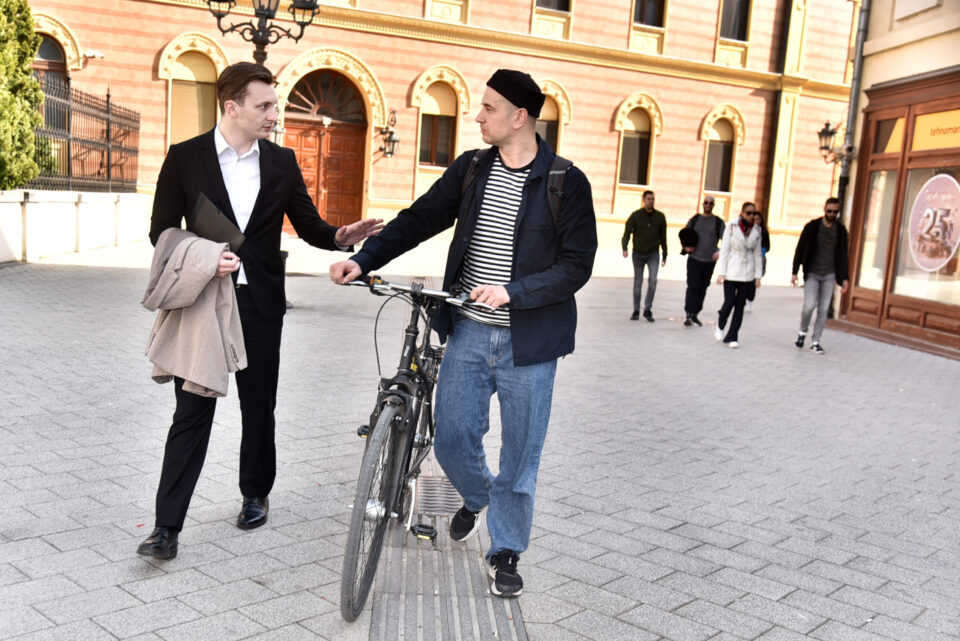It’s very important to stay brave and endure all the bad things that life brings
 The traveling exhibition “White Russians and the Renaissance of the Serbian Theater”, which we had the opportunity to see during the unusually warm month of February in Novi Sad, talks about the influence of Russian artists on the development of ballet, opera, and drama in Serbia. According to the director of the Serbian National Theater, Zoran Đerić, many of them were engaged in theater directing, which does not make them much different from Russian artists who still offer their services to our theaters today, more than 100 years later. During the duration of the exhibition, we had the opportunity to meet exactly one such theater director. This is Konstantin Mukhanov, who is currently working on the staging of his play The Steadfast Tin Soldier, which is based on the Hans Christian Andersen fairy tale of the same name, at the Youth Theater in Novi Sad.
The traveling exhibition “White Russians and the Renaissance of the Serbian Theater”, which we had the opportunity to see during the unusually warm month of February in Novi Sad, talks about the influence of Russian artists on the development of ballet, opera, and drama in Serbia. According to the director of the Serbian National Theater, Zoran Đerić, many of them were engaged in theater directing, which does not make them much different from Russian artists who still offer their services to our theaters today, more than 100 years later. During the duration of the exhibition, we had the opportunity to meet exactly one such theater director. This is Konstantin Mukhanov, who is currently working on the staging of his play The Steadfast Tin Soldier, which is based on the Hans Christian Andersen fairy tale of the same name, at the Youth Theater in Novi Sad.
Together with his family, Mukhanov came to Serbia in November 2022, namely to Novi Sad, the city that holds the title of European Capital of Culture. As one of the reasons why he decided on Novi Sad, he states that the architecture and relief of the city itself remind him of Zelenograd, the suburb of Moscow where he lived before coming to Serbia. Comparing Belgrade and Novi Sad, he says that both cities have their own rich history and culture and that he finds many inspiring places in them, such as Kalemegdan and Petrovaradin. He points out that he greatly appreciates the fact that in Belgrade it is possible to see traces of different cultures, such as the remains of the Austrian, Turkish, and Roman empires, but also that he finds certain similarities between New Belgrade from the communist Yugoslavia era and certain places and cities in Russia. However, Belgrade is too urban and noisy for him, and he enjoys the peace offered by Novi Sad with its narrow streets and bicycle paths.
People can adapt to any condition, I firmly believe that!
Through the conversation, I concluded that one of the main reasons why he came to Serbia, and not to some other European country, was precisely the similarity between our cultures and peoples, which constantly binds us throughout the centuries. He claims that it is always difficult to fit into a different environment, but that the process of adaptation is much easier if you manage to find similarities between that place and the place you come from. “People can adapt to any condition, I firmly believe that!”, but he adds that the process is also easier if you are young, and although he says he is young, he does not allow himself certain “silly things” because of his family. He points out that he is very glad that his children, through socializing with their peers in kindergarten, have the opportunity to learn the Serbian language as if it were their mother tongue and that they already speak much better than him.
What shocked him during his stay in Serbia was the kindness and hospitality he encountered at every step. I was very glad that he pointed out these two qualities because often as a nation we know to be too self-critical in this regard. When asked what are the main similarities and differences between the Serbian and Russian people, he says that the Russian people are extremely heterogeneous and that he believes that he would not be able to properly answer that question, but that the Orthodox Christian faith is certainly our greatest similarity. What was unusual for him about our churches is that the flag of the Republic of Serbia flies on the flagpole along with the church flag. I tried to explain to him through the history of the creation of the flag and the symbolism of all the colors on it that it does not represent something political, but that it has a much deeper meaning and that we as a nation are very proud of our flag because it represents the centuries-old struggle of our people for freedom from foreign occupier.
 After that, we moved on to talk about the play he is working on, as well as the differences and similarities between film and theater as art. He revealed to me that he is working on a theatrical adaptation of Hans Christian Andersen’s fairy tale “The Hardy Tin Soldier” and that he hopes that the play will have its premiere in 2024 at the Youth Theater in Novi Sad.
After that, we moved on to talk about the play he is working on, as well as the differences and similarities between film and theater as art. He revealed to me that he is working on a theatrical adaptation of Hans Christian Andersen’s fairy tale “The Hardy Tin Soldier” and that he hopes that the play will have its premiere in 2024 at the Youth Theater in Novi Sad.
“The story is about one of 25 toy soldiers made out of tin spoons. But because there was not enough material for all 25 soldiers, one of them was without a leg. That soldier in the children’s room meets a ballerina made out of paper and immediately falls in love. The reason for that is that he saw her standing on one leg because she was in a dancing position. He tries to reach her but ends up on the streets, where he suffers many terrible things. He ends up in a sewer and gets eaten by a fish, but he stays strong and dreams about seeing her again. Then, someone catches the fish and puts it on the kitchen table to prepare it for dinner. But the chef works in the house for the family the toy soldier was given to in the first place. The chef gives a toy back to the child, and then the child throws it into the fire by accident. The wind blows and puts the ballerina next to him in the fire, and for that brief moment, they are finally together. They both burn in fire, and the only thing that is left is some parts of metal and jewelry.”
Sadly, many of the cultural ties that existed between Russia and the West will be severed and erased due to politics and power play
The story is of course sad, but it has a powerful message, which is that it is very important to stay brave and endure all the bad things that life brings. He explained to me that the show would feature a combination of real actors and puppets and that each actor would have a puppet version of their character. We talked a little about the differences and similarities between film and theater and how film directors focus much more on the concept of time in their projects, while theater directors’ preoccupation is emotion and communication with the audience in the room. He says that he is still learning a lot about the theater and the stage, and he also answered the question of whether he behaves authoritarian or flexible while working with the actors in the play. “Sometimes I do act authoritarian while working with actors because I see the whole picture, but I listen to them often when they want to let me know how they feel about their role and what they would do differently,” he concluded.
He says that he is very grateful to the director of the Youth Theater, Emilia Mrdaković, who helped him a lot and whom he considers a good friend. He also told me that at the moment he is not thinking at all about returning to Russia and that he thinks that staying in Serbia is very good for him and his family. The conversation with Mr. Mukhanov was really refreshing for me and I’m glad we had the opportunity to talk about big and small things outside of politics, I’m especially glad about the message he sent at the end of our conversation about how he thinks it’s sad that many cultural ties that existed between Russia and the West will be severed and erased due to politics and power play.
Author: Filip Kalmarević
